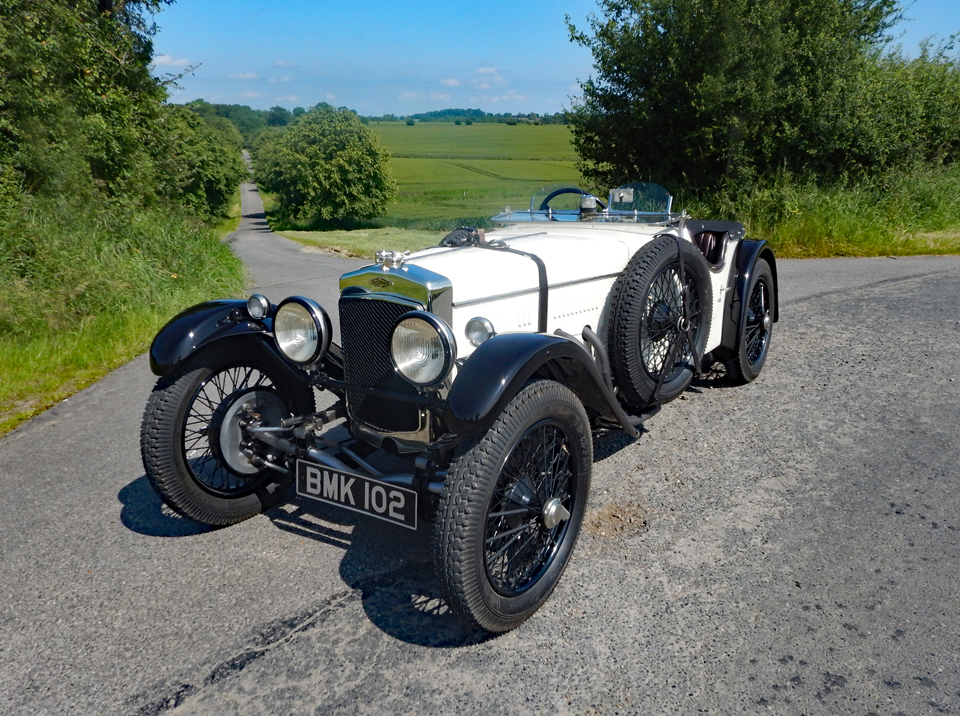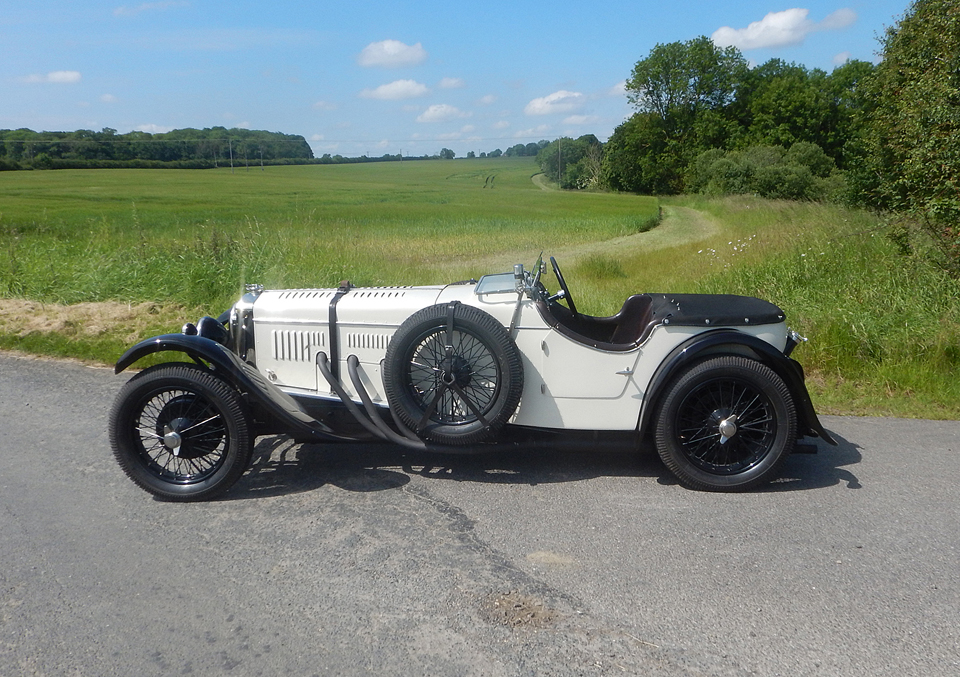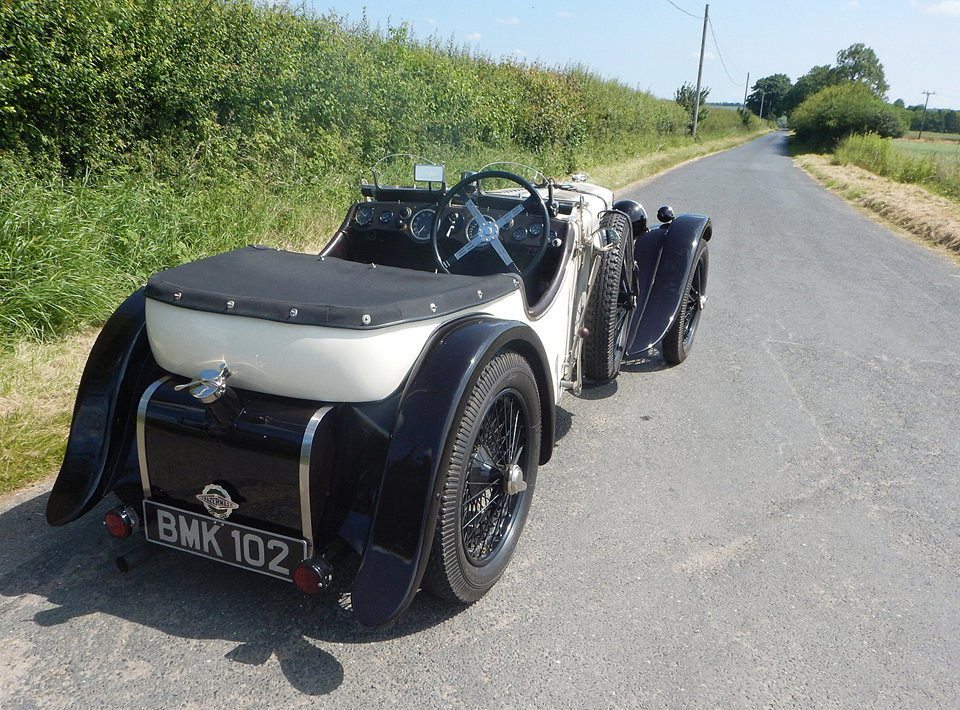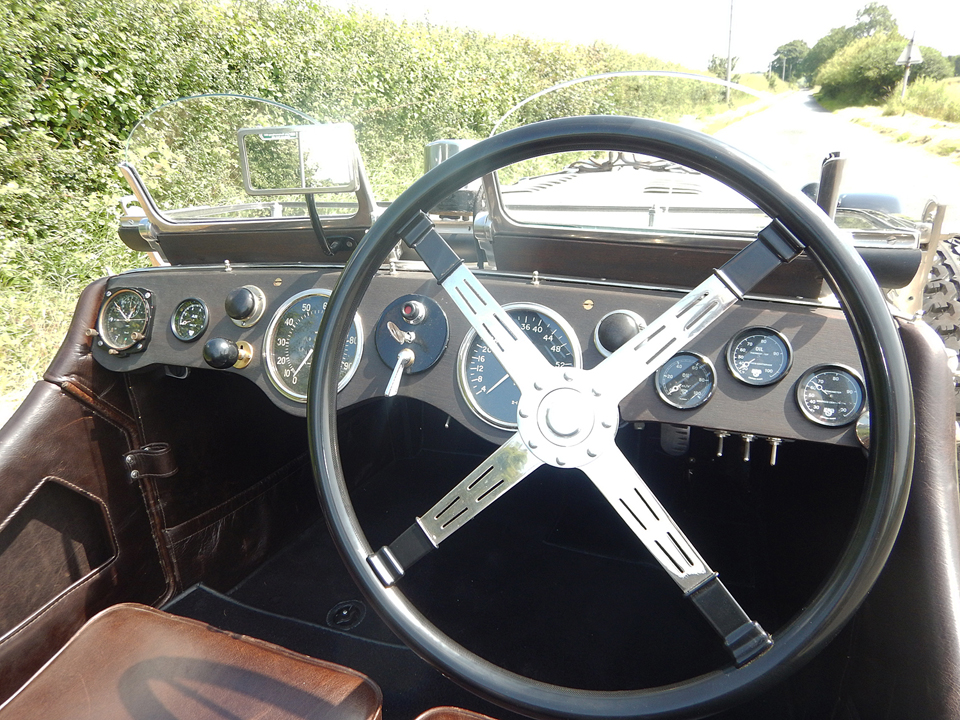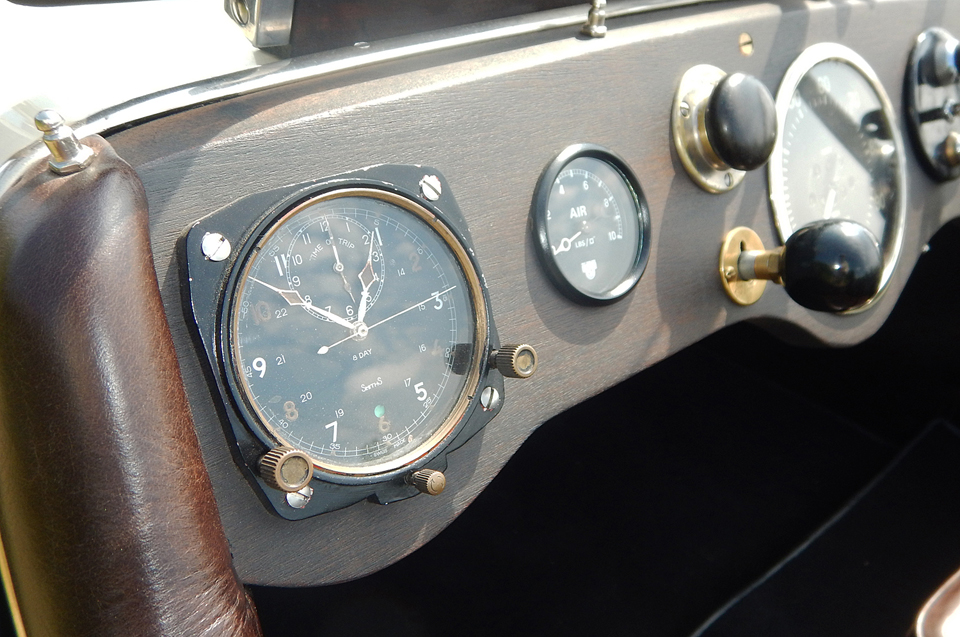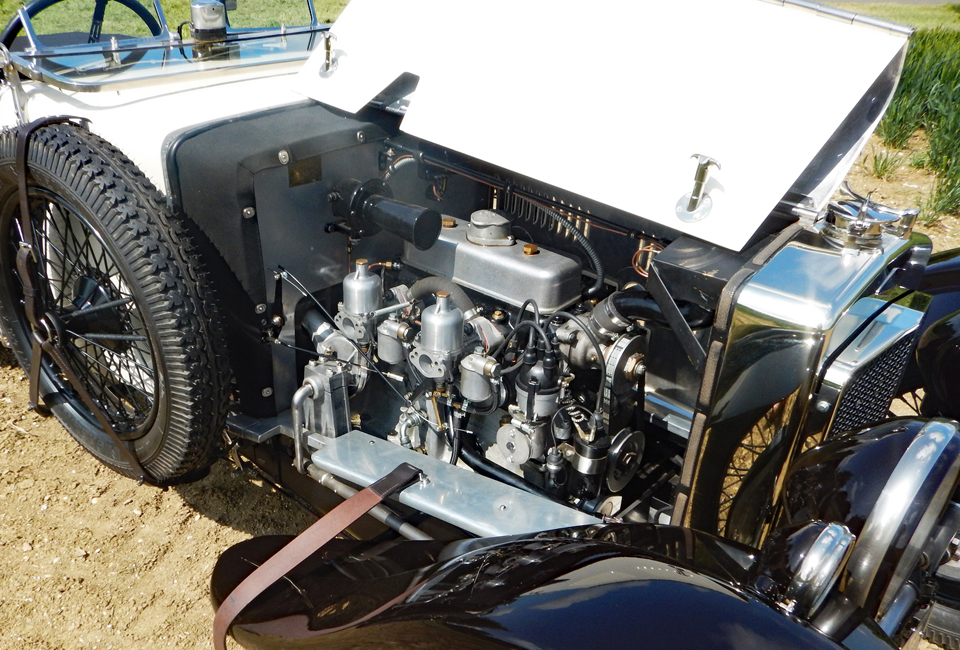1934 Frazer Nash TT Replica
Chassis number: 2125
Engine number: 10402
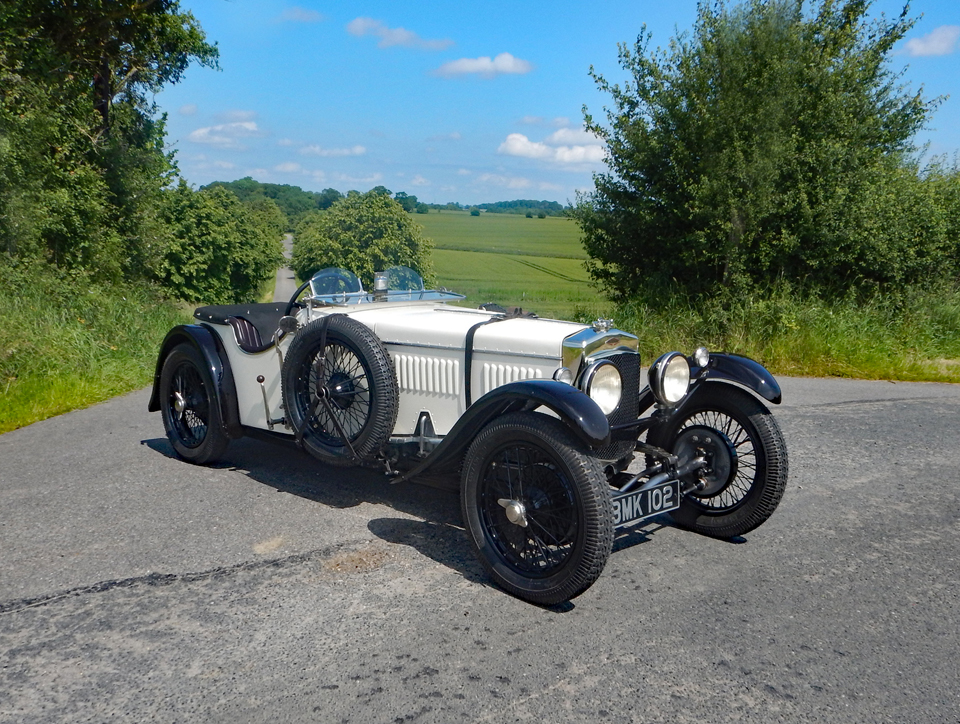
In December 1910 two engineers, Ron Godfrey and Archie Frazer-Nash set up in business to produce GN cyclecars. By 1914 and the start of the Great War around 200 had been built. After the ‘unpleasantness’ the British Gregoire Company took a majority shareholding in GN with plans to produce a more touring style of car against the wishes of the founders. By 1922 both had left the company. Godfrey went on to start up HRG and Captain Archie Frazer-Nash set up on his own.
Between 1924 and 1954 around 450 Frazer Nash cars had been built, of which 350 were the pre-war ‘Chain Gang’ models. Of these 85 had the desirable “TT Replica” bodywork that was offered between March 1932 and 1939.
The TT Replica name was derived from the three cars that entered the 1931 Tourist Trophy Race although not without irony as none of the three finished the event. However, the TT Replica was sold as an all-round performer and while major success may have eluded the marque in circuit racing, the International Alpine Trials of 1932, 1933 and 1934 told a very different story. With its agile handling and ability to negotiate tight Alpine passes under full power the teams were uniquely un-penalised over the three years.
A variety of proprietary engines were offered by the factory and a TT Replica could be supplied with the 1½ litre, four-cylinder, over-head valve Meadows engine, the 1,660cc six cylinder, double overhead-cam Blackburne or the 1½ litre, single overhead-cam Gough. The factory would also manufacture individual cars to order and various combinations of engine, chassis length and bodywork were produced.
Chassis 2125 was ordered by Bud Batchelor of Hartlepool on July 6th, 1934, with the desirable long chassis (which allows people of normal stature access and comfort) and a Meadows engine. The Frazer Nash registry notes that both he and the second owner, a Mr. R Peatty used the car in competition. The oldest photos of the car show it in 1938 clearly on some sort of event.
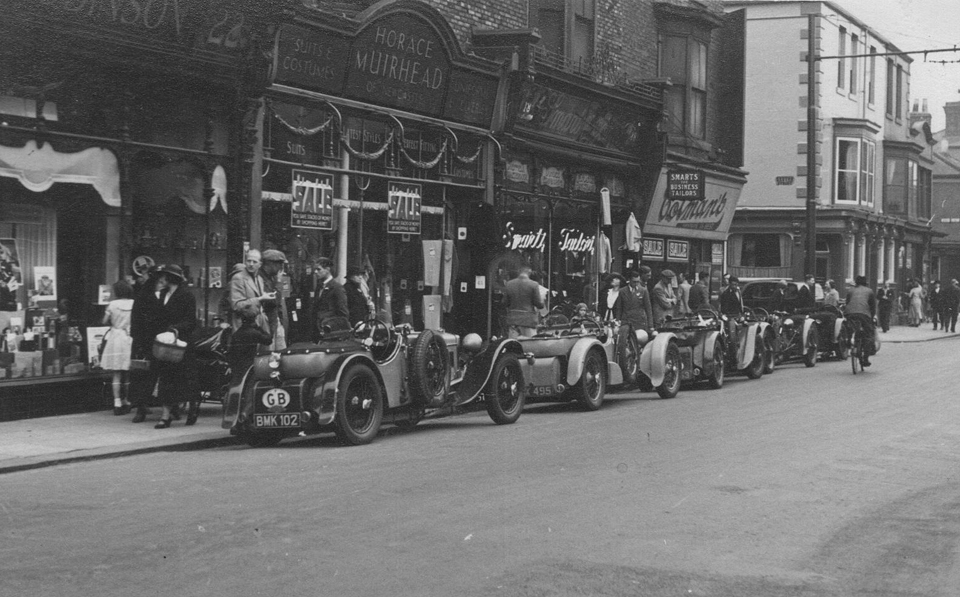
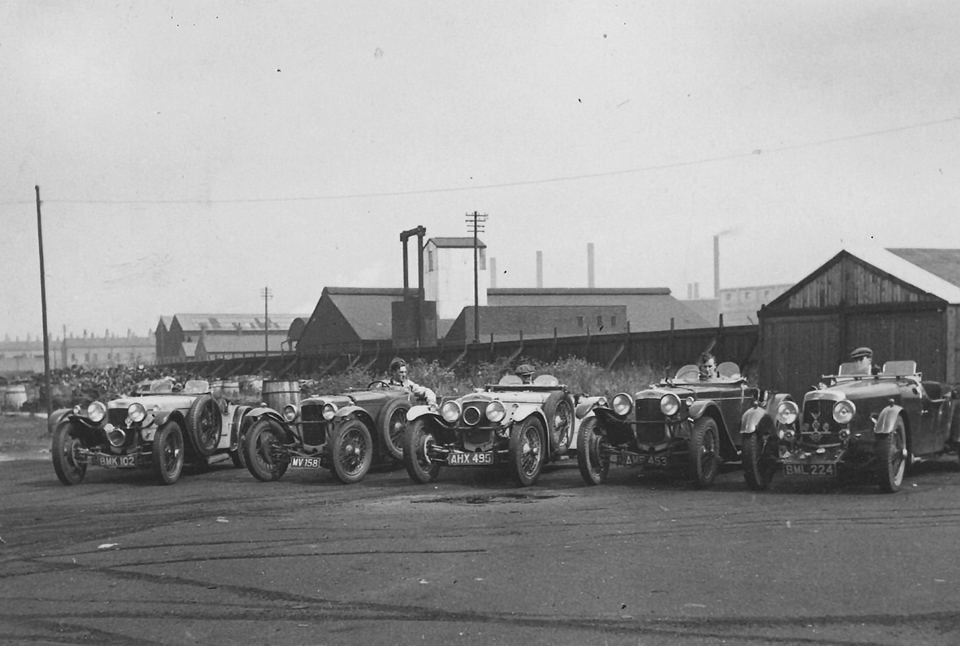
The next recorded owner bought the car in 1940. He was Oliver James, a pilot with the RAF with a significant and poignant story. He was twenty years old and training to fly bombers in the north of England. He persuaded his mother to lend him the money to buy this Frazer Nash to replace his motorcycle. Copies of his letters tell how he used the car relentlessly buying fuel from the local undertakers who had a generous ration.
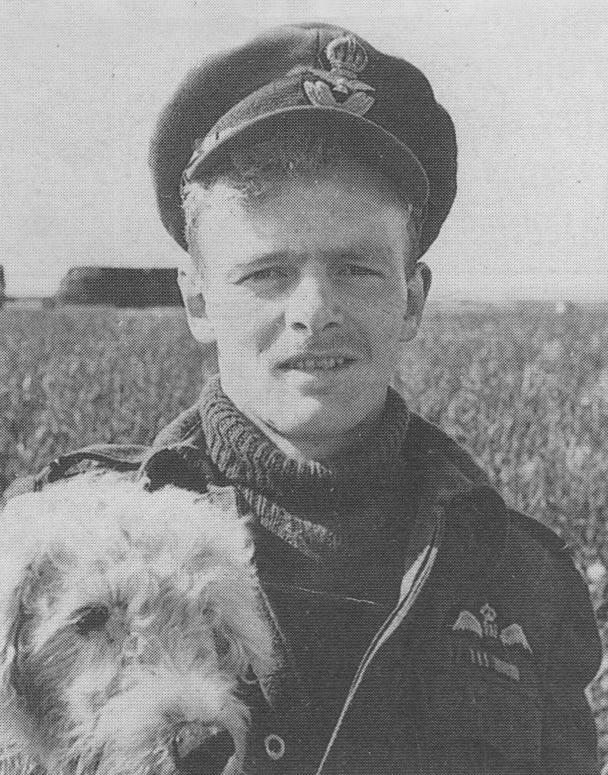
By the Spring of 1941 Flight Sergeant James, at the age of twenty one, was a seasoned pilot with over a dozen ops completed. On 21st March he and his crew took off in a Hampden light bomber. As they crossed into enemy territory they came under very accurate fire from 20mm flak and the plane crashed in France. Only he and the wireless operator survived and he had severe burns to his hands and face. Captured by the German Army he was admitted to Morlaix Hospital. After some weeks a German military doctor decided that his slow healing left hand should be amputated. James protested that this was not necessary but shortly afterwards the operation was carried out. By July, and after two failed attempts to escape, James was moved to POW camp, Stalag IXC. Transferred to Rouen for a potential exchange of injured prisoners, James and three other airmen determined to make a bid for freedom. On 21st November they cut through the wire of their camp and escaped. They split into pairs, and Oliver James and Bill McGrath made their way to the station and somehow caught the express train to Paris.
The story of their remarkable journey from there to Spain and repatriation reads like the script to a Spielberg movie and is fully documented in the car’s file. By the 29th December 1941 they had made their way to the British Consulate in Barcelona and having eventually gained passage on a ship they arrived back in Britain in March 1942. Oliver James was awarded the Distinguished Flying Medal and the Military Medal. He was granted two months leave, spent with his fiancée and the Frazer Nash.
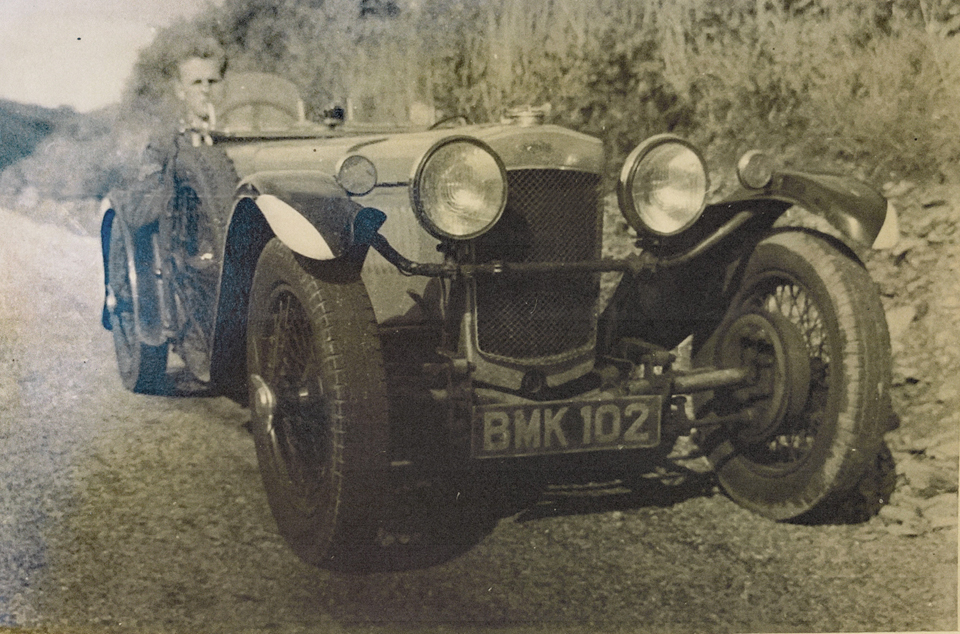
Returning to duty with an artificial forearm and hand his new posting was ‘flying a desk’. Despite his disability he was determined to fly again and this time he wanted to fly fighters. His personality and drive got him an ‘audition’ that he passed. In November 1942 Oliver James was posted to No:59 Operational Training Unit and by May 1943 he was fully qualified on the mighty Typhoon, a fighter with a 36 Litre, 24 cylinder supercharged engine making over 2000hp. James was promoted to Flying Officer and posted to 245 Squadron based at Lydd and Westhampnett (Goodwood) flying low level ground attack sorties into Northern France.
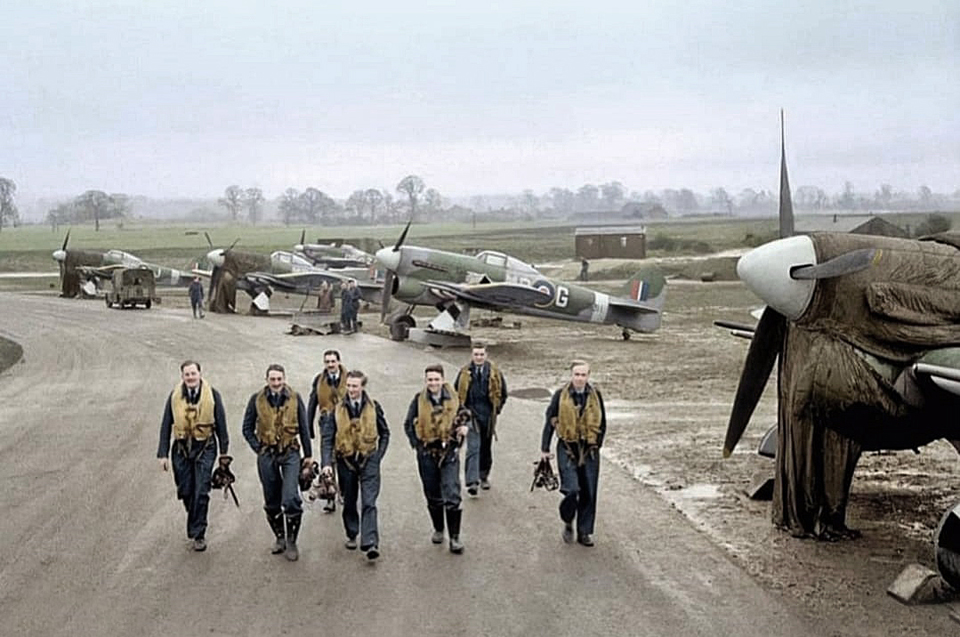
At 4.35 on 4th October 1943 James took off with his wingman on a mission to strike against ground targets. Both failed to return. They had been engaged by Focke Wulf FW 190 fighters and Flying Officer Oliver James M.M. D.F.M was shot down, crashed near Evreux and was killed. He was buried at the Evreux Cemetery beside other British aircrew. He was twenty three years old.
The remarkable story of this truly courageous young man and his association with the Frazer Nash was the subject of a seven page article by Mick Walsh in the August 2022 edition of Classic and Sportscar magazine.
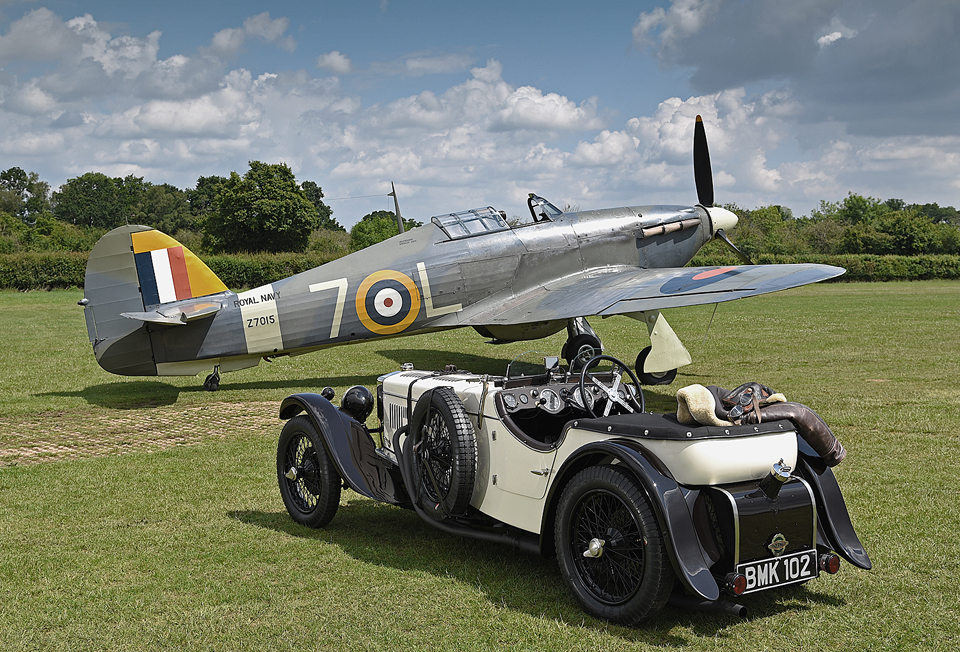 Photo credit: Will Williams – Classic & Sportscar – August 2022
Photo credit: Will Williams – Classic & Sportscar – August 2022
After the War the car had a number owners all of whom are listed in the original buff log books that are in the history file. The most notable of these is Joe Fairley of Belfast who bought it in 1969 and kept it for 49 years until 2018. During his ownership he regularly competed with the car and made contact with previous owners by letter.
In 2018 he sold the car to Patrick Blakeney-Edwards who had known about it for years. Patrick is one of the prime movers in Frazer Nash circles and runs a highly regarded race preparation and restoration business that is known the world over. He researched the history and realized it was worthy of a body off/bare chassis restoration with paint and trim being put back to original. Sadly at some point its original engine had been replaced, as is often the case with competition cars, so a period crankcase was used to build up a high spec fast road engine. You can imagine his excitement when he bought ‘un-seen’ an unassuming box of spares and found it contained the lost crankcase to this car.
2125 is an original long chassis Meadows engined TT Rep that has been restored to a very high standard and fitted with a high-performance engine. It is offered today in its original colour scheme together with its original numbered crankcase and with a history that frankly defies comparison.
